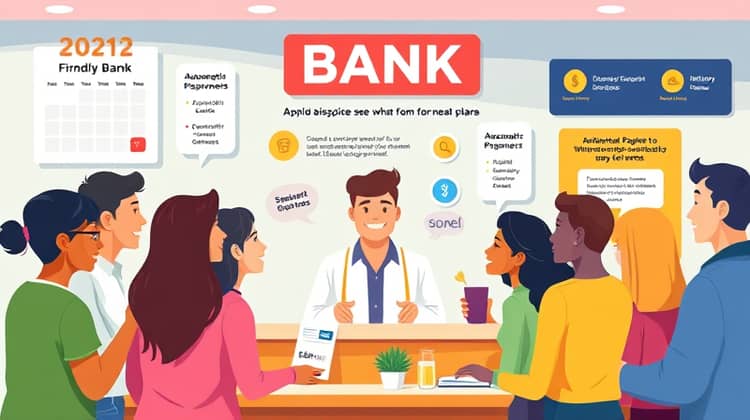Taking out a personal loan can be a significant financial decision. It is essential to approach this with caution and armed with the right questions to ensure you select a lender that meets your needs. Before signing any agreement, it is advisable to ask your lender specific questions that clarify the terms, conditions, and potential implications of the loan.
In this article, we provide you with ten crucial questions to ask your lender before obtaining a personal loan. Each question is designed to help you understand the loan better and make an informed decision. By gathering all necessary information, you can avoid unexpected surprises in the future and ensure that you are choosing the best option for your financial situation.
Before committing to a loan, these inquiries will help clarify aspects like interest rates, fees, and repayment terms. Let’s delve into these questions so that you can approach your loan application with confidence.
1. What is the Interest Rate?

Understanding the interest rate is vital because it determines how much you will pay over the life of the loan. It’s essential to know whether the rate offered is competitive compared to other lenders.
Moreover, interest rates can vary based on factors such as your credit score, income, and the loan amount. Make sure to clarify if the quote you received is indicative of the rate you can expect. It's best to ask about both the nominal interest rate and the annual percentage rate (APR), as the APR includes additional fees that can greatly affect the overall cost of the loan.
- Ask if the offered interest rate is fixed or variable.
- Inquire about the factors that could lead to an increase in your interest rate.
- Request a breakdown of how the interest is calculated.
2. Are There Any Fees?

Before taking on a personal loan, it’s imperative to understand the fees associated with it. Most loans come with various fees that can increase your total repayment amount significantly.
Common fees include origination fees, late payment fees, and prepayment penalties. Knowing the applicable fees upfront can help you avoid surprises when it comes time to repay the loan.
- Ask about origination fees and how they are calculated.
- Inquire if there are any processing fees or administrative costs.
- Clarify whether there are late payment fees and their amounts.
3. What is the Loan Term?

The loan term refers to the length of time you will have to repay the loan. This duration can affect your monthly payment and the total interest paid over the life of the loan.
A longer loan term usually means lower monthly payments but more interest paid overall. It's critical to evaluate what loan term works best with your budget and financial goals.
- Inquire about the minimum and maximum loan term available.
- Understand how the loan term impacts the interest rate.
- Ask if there is any flexibility in adjusting the loan term after approval.
4. Is the Interest Rate Fixed or Variable?

It is essential to determine if the interest rate is fixed (stays the same) or variable (can change over time). Fixed rates provide stability in payments, while variable rates may lead to fluctuating payments which could affect your financial planning.
Understanding the type of interest rate can also inform you about potential risks associated with the loan.
5. What is the Total Cost of the Loan?

It's crucial to understand the total cost of borrowing, which encompasses not just the principal amount but also the interest and any fees involved. This will help you determine whether the loan aligns with your budget and repayment plan.
Asking for the total cost upfront can also help you compare loans more effectively.
6. Are There Any Prepayment Penalties?

Prepayment penalties are fees that lenders charge if you pay off your loan early. This can be counterintuitive since paying off debt early is often seen as financially prudent.
Ensure you ask about the lender's policy on early repayments, as this can save you money dramatically if you have the means to pay off the loan sooner than planned.
- Inquire if there are any penalties for paying off the loan early.
- Ask how the prepayment penalty is calculated.
- Clarify whether you can make extra payments without incurring penalties.
7. What is the Monthly Payment?

Understanding the monthly payment amount is key to your budgeting and determining if you can afford the loan. Make sure you ask your lender for a detailed breakdown of how the monthly payment is calculated.
Also, consider asking whether the payment includes any taxes or insurance, as this can impact the total you are responsible for each month.
8. What Happens if I Miss a Payment?

Life can be unpredictable, and understanding your options in case you miss a payment is essential. Each lender has a different policy regarding missed payments, so it's vital to clarify this point beforehand.
Knowing the consequences can help you prepare for potential challenges and understand how to communicate with your lender in case of financial difficulty.
- Inquire about grace periods for missed payments.
- Ask what your lender's policy is for late fees.
- Understand how missed payments can affect your credit score.
9. Can the Loan Terms Change Over Time?

Some loans may have terms that allow for adjustments throughout the repayment period. Understanding if and how the terms can change is vital for financial planning.
Changes can include interest rate adjustments or changes in payment structure, depending on the lender and the type of loan.
10. Are There Any Discounts or Special Programs?

Many lenders offer discounts for various reasons such as setting up automatic payments or being a loyal customer. These can help you save money on your loan.
Inquire about any special programs that might apply to your situation, such as a good student discount or military service benefit.
- Ask about discounts for automatic payments.
- Inquire if there are loyalty programs for existing customers.
- Ask if they have any referral bonuses or programs.
Conclusion

Asking these ten questions will empower you to make an informed decision when considering a personal loan. Understanding the complete picture will help you plan your repayment and mitigate any risks associated with borrowing.
Being diligent in your inquiries can save you time, money, and stress down the line. A positive lending experience hinges on clear communication and an in-depth understanding of the loan's mechanics.
When taking out a loan, it is essential to establish a relationship of transparency and trust with your lender. By asking the right questions, you empower yourself to navigate the lending landscape with confidence.














